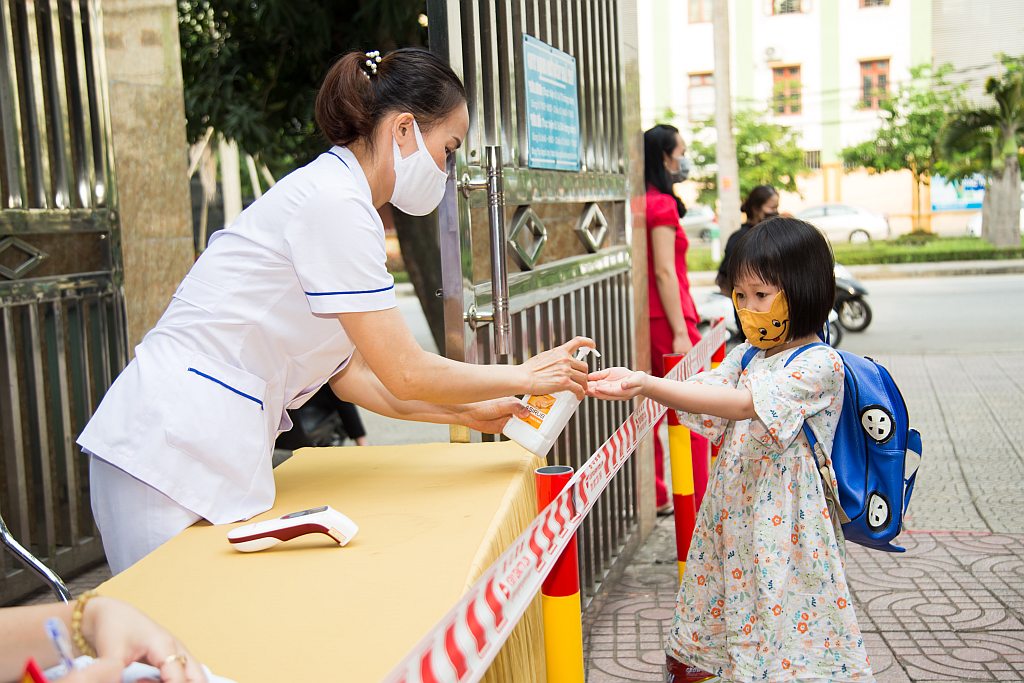Early Childhood Education (ECE) has an immeasurable impact on children’s holistic development and wellbeing. As has been well established, early childhood teachers play a key role in helping children develop their mental, social and emotional skills. Since the outbreak of the COVID-19 pandemic in late December 2019, however, we have seen an unprecedented negative impact on ECE worldwide. Evidence now attests that, for instance, in Asia-Pacific and Sub-Saharan African countries, over 18.6 million children in pre-primary education and 4.4 million pre-primary teachers have been negatively affected by school closures (UNESCO UIS, 2020).
To better understand ECE personnel’s needs and mitigate the negative impact of COVID-19 on ECE services, UNESCO Bangkok and UNESCO Dakar teamed up with partners to conduct region surveys in Asia-Pacific and Sub-Saharan Africa. These surveys were carried out from April to July 2020 with the collaboration of Association for the Development of Education in Africa (ADEA); Africa Early Childhood Network (AfECN); Asia-Pacific Regional Network for Early Childhood (ARNEC); Deutsche Gesellschaft für Internationale Zusammenarbeit (GIZ) GmbH; Early Childhood Workforce Initiative (ECWI); ECD Task Team of the Regional Coordination Group on SDG4-Education 2030 in West and Central Africa (RCG4-WCA); Inter-Country Quality Node on Early Childhood Development (ICQN-ECD); International Labour Organization (ILO); International Step by Step Association (ISSA); International Task Force on Teachers for Education 2030 (TTF); UNICEF; and World Organization for Early Childhood Education (OMEP).
Even given a host of pre-existing regional disparities between Asia-Pacific and West Africa pertaining to terms of access to and the overall quality of ECE, the surveys revealed a set of similar challenges that are currently impacting both region’s ECE workforces. Key shared issues disclosed from the survey include precarious working conditions and lack of access to the internet, and additional challenges related to continuing quality early childhood care and education for young children.
We have organized the findings that have emerged from these surveys into eight key observations; based on these observations, we conclude this report by recommending three supporting interventions.
Summary of Eight Key Observations:
- Few ECE personnel had received training in crisis management and distance teaching and learning prior to the COVID-19 outbreak
- A discontinuation of ECE personnel remuneration and changes to employment status have been reported since the COVID-19 outbreak in both regions,
- The government’s technical and financial support provided to ECE centers and staff in response to the COVID-19 crisis has significantly varied between the two regions.
- The majority of ECE centers in the Asia-Pacific have continued educational programs and communication with parents, since the outbreak of the pandemic. By notable contrast, it was found that only half of ECE centers in Sub-Saharan Africa did so. In both regions, the most frequently reported means of remote education and communication after the onset of the pandemic has been via mobile messaging platforms.
- A lack of affordable Internet access and equipment was reported as the greatest challenge to remote teaching and learning in both regions, followed by a lack of training and support in remote teaching and learning methods.
- Maintaining regular contact through messaging, social media, and other platforms and following up in providing children with learning and play activities in the domestic environment were identified as the most effective pandemic strategies in both regions.
- Ensuring the provision of COVID-19 preventive measures in ECE centers was the most frequently cited prerequisite for the reopening of schools, followed by a need for parents’ active support in ensuring children’s personal hygiene practices in both regions.
- The COVID-19 crisis has further demonstrated that ECE centers, both regionally and globally, continue to serve as critically important providers of early learning opportunities, as well as health and nutrition provision, especially for disadvantaged children.
The findings show that the pandemic has challenged ECE workforces more than anticipated. These challenges are compounded by pre-existing issues, including substandard wages, low social status, lack of professional development opportunities, weak administrative support, inequitable access to digital connectivity, overall lack of experience, pedagogical guidance, and essential resources for distance learning. In this context, it is important to note that ECE is a highly feminized sector, and women are therefore disproportionately affected by such crises and finding it increasingly difficult to manage challenges only further exacerbated by the COVID-19 pandemic.
In response to the identified challenges, we propose three recommendations for supportive intervention:
- PROVIDE ECE centers with timely financial and in-kind assistance in crisis situations and support of safe reopenings of ECE centers
- IMPROVE ECE personnel’s capacity with regard to remote teaching, learning, and crisis management; similarly, invest in providing ECE personnel with decent working conditions
- STRENGTHEN ECE efforts to develop remote teaching and learning that is adapted to children and local contexts Teachers are the very building blocks of education indeed, it would be impossible to provide students with a high-quality education, the fundamental needs and conditions for overall wellbeing, if teachers are not guaranteed support. Building a more sustainable and resilient system in the face of emerging global challenges requires that we address long-standing issues in the ECE sector. But if we are to address these issues effectively, governments, international development agencies, non-profit organizations, and the private sector must closely collaborate. Only by working together will we be able to build a better and stronger ECE system.
Kyungah Bang: Ms. Kyungah Bang is a programme officer responsible for UNESCO Bangkok’s regional programmes on early childhood care and education and inclusive education including children with disabilities and mother tongue-based multilingual education. She is also the coordinator of the Asia-Pacific Multilingual Education Working Group (MLE WG). She holds a M.Sc. from the National University of Singapore.
Hang Su: Ms. Hang Su is an intern at Section for Inclusive Quality Education of UNESCO Bangkok office. She is currently studying her MA Education, Gender and International Development at the University College London. She previously worked as a teacher in China, Egypt, Tanzania and Thailand.
Photo credit: Le Manh Thang / Shutterstock.com

